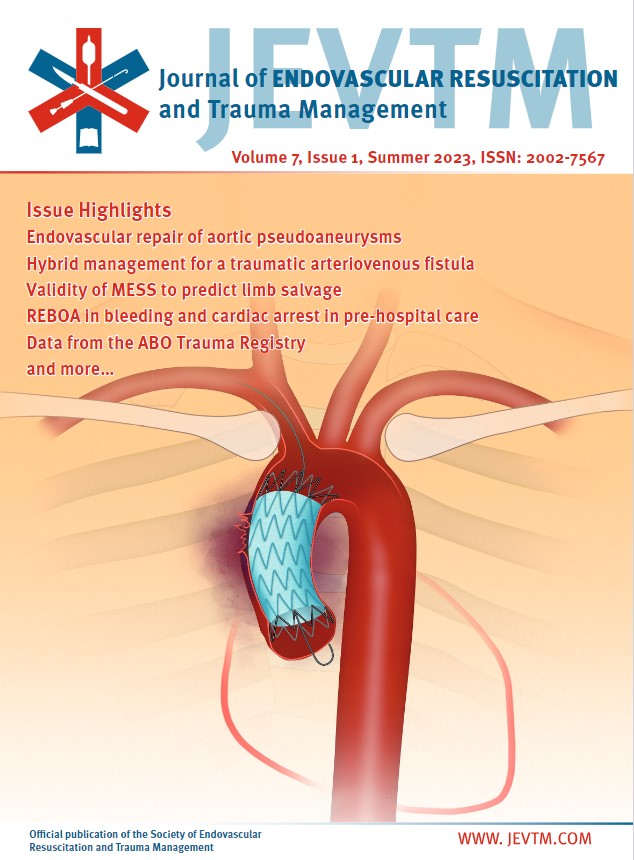REBOA in Bleeding and Cardiac Arrest in Pre-Hospital Care by Helicopter Emergency Medical Service: The RIBCAP-HEMS Project
Presentation of a possible care concept to incorporate REBOA in pre-hospital care
DOI:
https://doi.org/10.26676/jevtm.278Keywords:
Bleeding, Cardiac Arrest, REBOA, Pre-Hospital Emergency Medicine, Helicopter Emergency Medical ServiceAbstract
Background: Resuscitative endovascular balloon occlusion of the aorta (REBOA) plays an important role in the most severe trauma and medical patients with cardiac arrest. Its use in pre-hospital emergency medicine in Germany does not yet regularly occur, and the vast majority of rapid response vehicles are not equipped with REBOA devices. In this article we will describe the introduction of REBOA for bleeding patients, as well as an adjunct for refractory out-of-hospital cardiac arrest (OHCA), in a German helicopter emergency medical service (HEMS).
Methods: The DRF-Luftrettung HEMS base in Halle (Saale) Germany has incorporated REBOA in pre-hospital emergency medicine and will accompany this introduction with a feasibility study. We will describe the implementation of REBOA and the results of the training course. The training consists of theoretical and practical issues within different case scenarios. This was carried out before introducing REBOA into pre-hospital emergency medicine. Using a pre- and post-course exam and a self-assessment questionnaire the theoretical and practical knowledge and the performance of the critical care teams were determined.
Results: The results of the pre-course exam in comparison with the post-course exam improved from 82% to 96%. Based on the self-assessment questionnaires, all participants felt a relevant improvement of their theoretical and practical knowledge. All physicians successfully performed REBOA under ongoing cardiopulmonary resuscitation in manikin simulators.
Conclusions: The results from the training course indicate that there was a significant improvement of the theoretical and practical knowledge, as well as the performance of REBOA. The on-going feasibility study will show if it is worth introducing REBOA in a civilian HEMS for the patients in extremis.
Published
How to Cite
Issue
Section
License
Copyright (c) 2023 Journal of Endovascular Resuscitation and Trauma Management

This work is licensed under a Creative Commons Attribution-NonCommercial 4.0 International License.
Authors of content published in the JEVTM retain the copyright to their works.
Articles in the JEVTM are published under the terms of a Creative Commons CC BY 4.0 license, which permits use, downloading, distribution, linking to and reproduction in any medium, provided the original work is properly cited.




